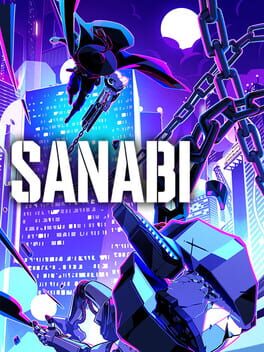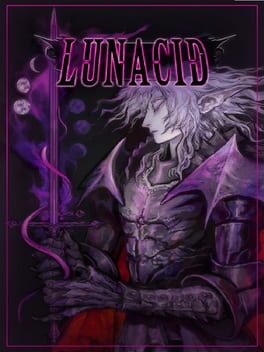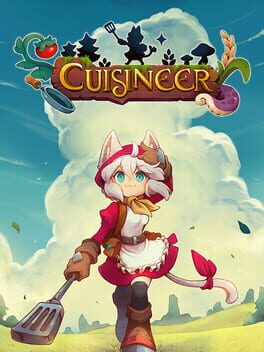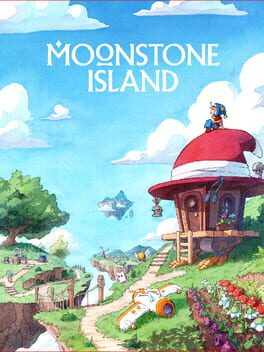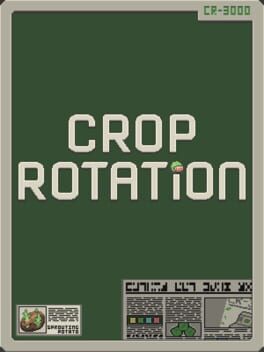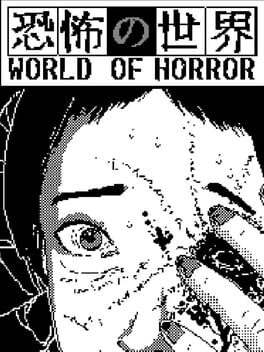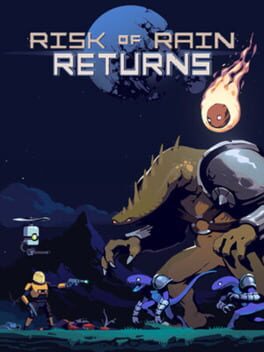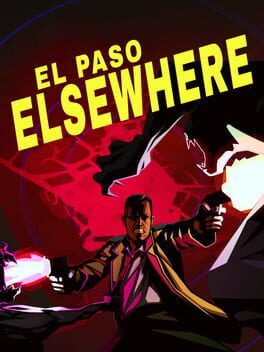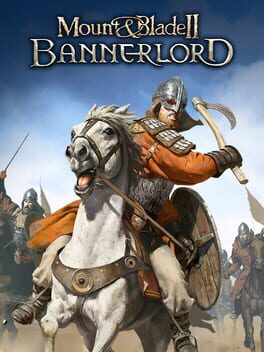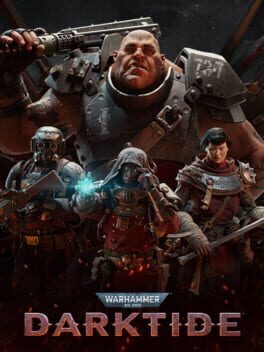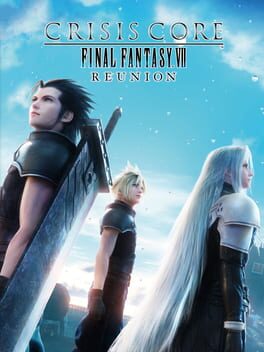Rainglove
2024
A stunningly high quality release from a small studio that has no business releasing a game this strong, Helldivers 2 is some of the most fun you can have in videogames and delivers in every possible way.
Currently the game does suffer from some networking issues, which is the only thing keeping me from giving it a solid 5 stars. These have improved since the first week of launch but there are still decent odds that you'll log in to group up with friends and the matchmaking will just not work, which is a massive bummer.
If you have the patience to push through the issues with the online then Helldivers is incredible. The gunplay feels punchy and sounds amazing, the game looks gorgeous, and the gameplay itself is rock solid. Helldivers knows exactly what it's trying to do and it nails every aspect of its design. The voice acting also deserves special mention, listening to your character scream in panic while you struggle to enter the right sequence of keystrokes to respawn your dead teammates as a horde of murderous bugs bears down on you is hilarious every single time.
If you're on the fence about Helldivers 2, it's absolutely worth a purchase. It's only February, but I'm confident this is going to be a GOTY contender for 2024.
Currently the game does suffer from some networking issues, which is the only thing keeping me from giving it a solid 5 stars. These have improved since the first week of launch but there are still decent odds that you'll log in to group up with friends and the matchmaking will just not work, which is a massive bummer.
If you have the patience to push through the issues with the online then Helldivers is incredible. The gunplay feels punchy and sounds amazing, the game looks gorgeous, and the gameplay itself is rock solid. Helldivers knows exactly what it's trying to do and it nails every aspect of its design. The voice acting also deserves special mention, listening to your character scream in panic while you struggle to enter the right sequence of keystrokes to respawn your dead teammates as a horde of murderous bugs bears down on you is hilarious every single time.
If you're on the fence about Helldivers 2, it's absolutely worth a purchase. It's only February, but I'm confident this is going to be a GOTY contender for 2024.
2022
I really enjoyed Sanabi, but honestly I think its score is a little inflated from just how good the last 2 hours of this game are. This game has some absolutely incredible moments. The opening is very strong, a few story moments in the middle are neat, and as mentioned the lead-up to the end of the game is amazing.
But the game is just way too drawn out. Most gameplay sections could have had their length cut in half, probably dropped to 1/4 if you wanted to only leave the really good stuff. A lot of sections, especially once you get to the back half of the main plot, drag on far past the point they should have and I was begging to be done with a few segments long before I reached the end. This was generally not because of difficulty - This is not an overly challenging game outside of a few tricky platforming areas. Instead you'll just be seeing endless screen after screen of incredibly basic platforming challenges you'd already mastered twenty minutes ago.
This is especially painful because Sanabi's writing is often genuinely enjoyable, though sometimes a little clumsy, and is really the only reason I made it through to the credits. The characters are generally well written and the dialogue usually succeeds at being actually funny. I often found myself wishing dialogue scenes would stretch on a little longer just so I could spend more time with the characters, but inevitably the scenes end and you're due for another 30 minutes of silently grappling your way through repetitive platforming challenges.
Sanabi is frequently compared to Katana Zero and while I agree the vibes are similar, I think Sanabi's flaws become especially glaring when that comparison is drawn. Katana Zero's total runtime clocks in at around 3.5-4 hours, less than half the time it took me to beat Sanabi, but that game has cut all the fat that sometimes makes Sanabi such a chore. If you enjoyed Sanabi then I think Katana Zero is an easy instant recommend, providing a shorter, more focused experience.
I still think Sanabi is worth playing. The story is fun, and the characters are likable. But the endless padding really brings down a game that is otherwise so close to becoming one of the indie greats.
But the game is just way too drawn out. Most gameplay sections could have had their length cut in half, probably dropped to 1/4 if you wanted to only leave the really good stuff. A lot of sections, especially once you get to the back half of the main plot, drag on far past the point they should have and I was begging to be done with a few segments long before I reached the end. This was generally not because of difficulty - This is not an overly challenging game outside of a few tricky platforming areas. Instead you'll just be seeing endless screen after screen of incredibly basic platforming challenges you'd already mastered twenty minutes ago.
This is especially painful because Sanabi's writing is often genuinely enjoyable, though sometimes a little clumsy, and is really the only reason I made it through to the credits. The characters are generally well written and the dialogue usually succeeds at being actually funny. I often found myself wishing dialogue scenes would stretch on a little longer just so I could spend more time with the characters, but inevitably the scenes end and you're due for another 30 minutes of silently grappling your way through repetitive platforming challenges.
Sanabi is frequently compared to Katana Zero and while I agree the vibes are similar, I think Sanabi's flaws become especially glaring when that comparison is drawn. Katana Zero's total runtime clocks in at around 3.5-4 hours, less than half the time it took me to beat Sanabi, but that game has cut all the fat that sometimes makes Sanabi such a chore. If you enjoyed Sanabi then I think Katana Zero is an easy instant recommend, providing a shorter, more focused experience.
I still think Sanabi is worth playing. The story is fun, and the characters are likable. But the endless padding really brings down a game that is otherwise so close to becoming one of the indie greats.
2022
2023
There's the skeleton of a good game here, but Cuisineer fails to deliver in the ways that matter. Dungeons are fun but aimless, and they flood you with way more loot than you can actually carry. Restaurant management starts off extremely slow and is terribly underdeveloped. The balancing between dungeon runs and restaurant running is also completely shot, you'll spend one day in a dungeon and then need to spend over a week selling that food in your restaurant to clear out room in your fridge.
As far as I've been able to tell, what you're serving also barely matters. I get the impression the game wants you to run between multiple dungeons to pick up different kinds of ingredients to make more complex dishes, but in practice you can just pick up everything, slam it all in the fridge, and you'll have no issues. There's no menu management and townsfolk never get tired of eating the same thing every day.
As far as I've been able to tell, what you're serving also barely matters. I get the impression the game wants you to run between multiple dungeons to pick up different kinds of ingredients to make more complex dishes, but in practice you can just pick up everything, slam it all in the fridge, and you'll have no issues. There's no menu management and townsfolk never get tired of eating the same thing every day.
2023
A fun take on the current comfy game craze. The romances are cute, collecting monsters is fun though stabling them gets a little too micromanagement heavy. I do wish there was a little more to do, the gameplay loop gets pretty stale after the first few hours and while I kept waiting for the game to introduce something new to shake things up, that never happened. A fun way to spend a few afternoons.
2023
2020
2023
2023
I think I love this game? It does have flaws, sometimes glaring ones, but the combat flows so well and the story really hit for me. This is definitely not a game for everyone, the early levels are pretty repetitive and it takes a little too long for the game to really find its footing, but once it gets going it really goes places. It tells a story about abuse and addiction in a way that I found refreshingly honest, if a little clumsily handled in one or two instances. Overall a great game to spend a couple afternoons on if you can muscle through the game's slow opening.
2020
I'm really glad this game exists - Larian is a great studio and I'm happy to see them release a title that's done so phenomenally well. I'm happy to see a AAA CRPG, because they barely ever get made, and I really hope that this game can inspire more games like this with this level of production.
I think Baldur's Gate 3 is objectively a great game, but it is flawed, and it's flawed in ways that really bring my experience down. I can appreciate what it's doing, the mocap for every piece of dialogue is amazing, the voice acting is stellar, the character writing is mostly pretty good, the environments and visuals in general are stunning. If you really like these kinds of things in a game, BG3 is an easy, strong recommend.
While I like these aspects, and I appreciate the artistry on display here, at the end of the day BG3 is a videogame that you have to play, and I think it struggles with that. Sometimes it's great - When everything is working combat is fast-paced and fun, enemies will frequently throw out completely unexpected combinations of moves or attacks that can drastically alter the battlefield, and it can be great to see your build come together to make a bad guy just absolutely explode. There's a core to combat that's just really fun. Shoving dudes off cliffs is fun, turning a group of enemies into a bloody mist by throwing a bomb at them is fun, even just hitting people for big numbers is fun.
But a lot of the time, you're not doing that. A significant number of fights are against large groups of enemies who can't do anything but swing or shoot at you, where you barely have to think about the encounter and where you don't even have to try to do well because you have enough camp supplies to take 80 long rests back to back. Or you're engaging in some of the most tedious exploration I've ever experienced in a game, where you have to pixel hunt for chests or interactables because Alt no longer highlights them reliably, while herding your party of cats up to and down from ledges that they often get stuck trying to navigate. Most of the time you'll navigate some tedious series of jumps only to discover that there's nothing on the other side besides a chest with 150 gold in it, and maybe a +1 piece of armor that's worse than everything your party is already wearing. And that gold is functionally worthless, because the game drowns you in magic items that serve no purpose but to be vendored.
The game also suffers heavily from being chained to 5th edition, and I think most of my complaints about it stem from this. Character building just isn't particularly fun, most experimentation comes from looking for combos that interact in broken ways to trivialize an already-easy game, and from what I've seen they don't usually do so in an interesting way, they just make what you were already doing twice as strong. Sorcadins and dual-crossbow sharpshooters are strong, but they're just making the number you were already rolling bigger.
Divinity definitely crossed over into being overcomplicated at times, but this feels like a step way too far in the other direction. Most level-ups I don't make any choices for a character, they just gain 8 HP and I move on. It feels lame that the most I can look forward to is switching from rogue to fighter in 3 levels, and three levels after that I'll get superiority dice as my only new thing. I feel like the complexity could have at least been pushed up a little from the tabletop, since this is a videogame and you have the computer to help track your numbers.
This also extends to gear, which is mostly not great. There are very few interesting magic items, and most of the interesting ones are worse than the boring "+2 to damage" items they're competing for a slot with.
All of this combines to make the meat of the game - combat and exploration - a chore. Exploration is sometimes rewarding, but usually pointless. There are interesting combat encounters, but these tend to be the exception. While the story is interesting and is presented beautifully, it suffers from inconsistent writing and a never-ending onslaught of bugs.
Normally I'm pretty good about finishing games, but I couldn't make it through BG3. I hit act 2 and shelved it. It's a buggy unbalanced mess and, while it might get good 60 hours in, there's too many other good games out right now for me to want to sink that much time into an experience that may or may not pay off. I'm still glad BG3 exists, but it's not really my thing. I look forward to seeing where it leads games in the next few years.
I think Baldur's Gate 3 is objectively a great game, but it is flawed, and it's flawed in ways that really bring my experience down. I can appreciate what it's doing, the mocap for every piece of dialogue is amazing, the voice acting is stellar, the character writing is mostly pretty good, the environments and visuals in general are stunning. If you really like these kinds of things in a game, BG3 is an easy, strong recommend.
While I like these aspects, and I appreciate the artistry on display here, at the end of the day BG3 is a videogame that you have to play, and I think it struggles with that. Sometimes it's great - When everything is working combat is fast-paced and fun, enemies will frequently throw out completely unexpected combinations of moves or attacks that can drastically alter the battlefield, and it can be great to see your build come together to make a bad guy just absolutely explode. There's a core to combat that's just really fun. Shoving dudes off cliffs is fun, turning a group of enemies into a bloody mist by throwing a bomb at them is fun, even just hitting people for big numbers is fun.
But a lot of the time, you're not doing that. A significant number of fights are against large groups of enemies who can't do anything but swing or shoot at you, where you barely have to think about the encounter and where you don't even have to try to do well because you have enough camp supplies to take 80 long rests back to back. Or you're engaging in some of the most tedious exploration I've ever experienced in a game, where you have to pixel hunt for chests or interactables because Alt no longer highlights them reliably, while herding your party of cats up to and down from ledges that they often get stuck trying to navigate. Most of the time you'll navigate some tedious series of jumps only to discover that there's nothing on the other side besides a chest with 150 gold in it, and maybe a +1 piece of armor that's worse than everything your party is already wearing. And that gold is functionally worthless, because the game drowns you in magic items that serve no purpose but to be vendored.
The game also suffers heavily from being chained to 5th edition, and I think most of my complaints about it stem from this. Character building just isn't particularly fun, most experimentation comes from looking for combos that interact in broken ways to trivialize an already-easy game, and from what I've seen they don't usually do so in an interesting way, they just make what you were already doing twice as strong. Sorcadins and dual-crossbow sharpshooters are strong, but they're just making the number you were already rolling bigger.
Divinity definitely crossed over into being overcomplicated at times, but this feels like a step way too far in the other direction. Most level-ups I don't make any choices for a character, they just gain 8 HP and I move on. It feels lame that the most I can look forward to is switching from rogue to fighter in 3 levels, and three levels after that I'll get superiority dice as my only new thing. I feel like the complexity could have at least been pushed up a little from the tabletop, since this is a videogame and you have the computer to help track your numbers.
This also extends to gear, which is mostly not great. There are very few interesting magic items, and most of the interesting ones are worse than the boring "+2 to damage" items they're competing for a slot with.
All of this combines to make the meat of the game - combat and exploration - a chore. Exploration is sometimes rewarding, but usually pointless. There are interesting combat encounters, but these tend to be the exception. While the story is interesting and is presented beautifully, it suffers from inconsistent writing and a never-ending onslaught of bugs.
Normally I'm pretty good about finishing games, but I couldn't make it through BG3. I hit act 2 and shelved it. It's a buggy unbalanced mess and, while it might get good 60 hours in, there's too many other good games out right now for me to want to sink that much time into an experience that may or may not pay off. I'm still glad BG3 exists, but it's not really my thing. I look forward to seeing where it leads games in the next few years.
A great return for the Armored Core series, with a few missteps. A solid title I have no trouble strongly recommending.
Armored Core 6 is pretty narrowly focused - You are a mech pilot, and your missions revolve around blowing up other mechs. The moment-to-moment gameplay for this is great, but does suffer from a few downsides I'll talk about in a little bit. But first - however you might feel about the game's other aspects, the combat singlehandedly elevates Armored Core 6 into an absolutely transcendental experience. When everything clicks it's an edge-of-your-seat white-knuckled rush that barely gives you time to blink. This is a game all about getting you into the flow state so many other games fail to even approach, and AC6 manages it effortlessly. Within seconds of starting its harder fights you're completely locked in, tracking weapon reloads and heat gauges and ammo counts, executing split-second dodges against simultaneous attacks from two or three other ACs that are each just as aggressive and lethal as you are, deciding in an instant whether or not this opening is long enough for you to freeze yourself in place for the full second it takes to charge a melee attack or fire off a shot from your shoulder-mounted railcannon, looking for the smallest breather to let you land and recharge your mech's energy. There are no iframes here, every missile that goes screaming past your mech really was just barely avoided by that last-second dodge, those extra few feet squeaked out because you decided to go with a lighter core for that tiny bit of extra boost distance. Moment-to-moment combat is some of the most fun I have ever had in a videogame and if this is what you enjoy about games, this is a must-play title.
There are some flaws with the systems surrounding the combat, unfortunately. The UI can be hard to see, and tracking critical information like how overheated your guns are can be difficult in a chaotic fight. Older games in the series allowed tweaking the color of the UI to make this easier, but AC6 has removed this option. You're stuck with the default grey-white, and considering that many of the game's fights take place in snow-covered vistas it can be easy to lose sight of all your various cooldowns in the middle of a chaotic fight when the UI blends in with the terrain.
The game's systems also sometimes come into conflict with each other, to the detriment of the otherwise tightly designed combat. Historically armored core has presented fights in each mission as a puzzle, with you trying to configure your mech into the solution that works best for you. Your first win in a mission might have been hard-won, but you can re-run that mission until you dial in on the perfect build and playstyle to S-rank it.
AC6 aims for this but unfortunately misses since it fails to balance its weapons, meaning that once you stumble onto the game's most effective builds you're unlikely to ever be made to change up your design, or even to be challenged at all since the strongest builds are so universally effective. Thanks to the introduction of stagger, the dramatic shortening of the range at which your mech is able to lock a target, and bullets failing to penetrate your target's armor at medium ranges, the best build for almost any fight is to slap two shotguns and the biggest explosive shoulder weapons you can carry onto whatever chassis you prefer to run around with. I did enjoy the game even after I happened onto the dual shotgun build that carried me through all three playthroughs, I thoroughly enjoyed the combat, but I hit the point fairly early on that most fights boiled down to instantly staggering my opponent, deleting 2/3rds of their healthbar, and repeating that until they ran out of healing. I actually had to spend a significant amount of time jetting around the arena avoiding bosses so that they had time to get all their dialogue out. I like that the game lets you kill bosses this quickly, but I wish it felt like I had earned that speed through skill or finding a unique combination of parts, not because I happened to find out that shotguns are imbalanced and let me chain-stagger every boss in the game to death with minimal effort.
This is doubly tragic because it means that the moments when AC6's combat really shines, when you're pushed to the edge of your ability and the limits of your build, become rare since you just smoke every fight in seconds. Barring maybe the final boss of the game's true ending I can count on one hand the number of times I had to restart a fight even once. Most bosses barely got to even move, spending most of the fight locked in a stagger state.
These pain points aside, AC6 is a very polished experience. The game's atmosphere and visuals are impeccably designed, the half-ruined world of Rubicon is gorgeous, and while the story is a little slow early on it does build to a satisfying conclusion and is a massive improvement over From's earlier titles whose stories were, at times, nearly nonexistent. Missions were varied enough to keep me engaged for most of the game's runtime and while the repetition had started to wear on me towards the end of my third full playthrough, the story had kicked into high gear and I was hooked all the way to the final boss. My entire third playthrough was done in a single session because I was so unable to put the game down.
I don't think AC6 is for everyone - Some of the early bosses can be sadistically difficult before you really have the customization options to experiment with how to fight them, and the menu-based mission structure is going to put more than a few people off. It's also infuriatingly close to being a perfect game - It's easy to point at two or three things that, if changed, would have vastly improved my time here. But the fantastically immersive experience of just playing Armored Core and the absolute joy of its combat mean that if you can put up with the game's oddities, there's a really unique experience here unlike just about anything else in videogames.
Armored Core 6 is pretty narrowly focused - You are a mech pilot, and your missions revolve around blowing up other mechs. The moment-to-moment gameplay for this is great, but does suffer from a few downsides I'll talk about in a little bit. But first - however you might feel about the game's other aspects, the combat singlehandedly elevates Armored Core 6 into an absolutely transcendental experience. When everything clicks it's an edge-of-your-seat white-knuckled rush that barely gives you time to blink. This is a game all about getting you into the flow state so many other games fail to even approach, and AC6 manages it effortlessly. Within seconds of starting its harder fights you're completely locked in, tracking weapon reloads and heat gauges and ammo counts, executing split-second dodges against simultaneous attacks from two or three other ACs that are each just as aggressive and lethal as you are, deciding in an instant whether or not this opening is long enough for you to freeze yourself in place for the full second it takes to charge a melee attack or fire off a shot from your shoulder-mounted railcannon, looking for the smallest breather to let you land and recharge your mech's energy. There are no iframes here, every missile that goes screaming past your mech really was just barely avoided by that last-second dodge, those extra few feet squeaked out because you decided to go with a lighter core for that tiny bit of extra boost distance. Moment-to-moment combat is some of the most fun I have ever had in a videogame and if this is what you enjoy about games, this is a must-play title.
There are some flaws with the systems surrounding the combat, unfortunately. The UI can be hard to see, and tracking critical information like how overheated your guns are can be difficult in a chaotic fight. Older games in the series allowed tweaking the color of the UI to make this easier, but AC6 has removed this option. You're stuck with the default grey-white, and considering that many of the game's fights take place in snow-covered vistas it can be easy to lose sight of all your various cooldowns in the middle of a chaotic fight when the UI blends in with the terrain.
The game's systems also sometimes come into conflict with each other, to the detriment of the otherwise tightly designed combat. Historically armored core has presented fights in each mission as a puzzle, with you trying to configure your mech into the solution that works best for you. Your first win in a mission might have been hard-won, but you can re-run that mission until you dial in on the perfect build and playstyle to S-rank it.
AC6 aims for this but unfortunately misses since it fails to balance its weapons, meaning that once you stumble onto the game's most effective builds you're unlikely to ever be made to change up your design, or even to be challenged at all since the strongest builds are so universally effective. Thanks to the introduction of stagger, the dramatic shortening of the range at which your mech is able to lock a target, and bullets failing to penetrate your target's armor at medium ranges, the best build for almost any fight is to slap two shotguns and the biggest explosive shoulder weapons you can carry onto whatever chassis you prefer to run around with. I did enjoy the game even after I happened onto the dual shotgun build that carried me through all three playthroughs, I thoroughly enjoyed the combat, but I hit the point fairly early on that most fights boiled down to instantly staggering my opponent, deleting 2/3rds of their healthbar, and repeating that until they ran out of healing. I actually had to spend a significant amount of time jetting around the arena avoiding bosses so that they had time to get all their dialogue out. I like that the game lets you kill bosses this quickly, but I wish it felt like I had earned that speed through skill or finding a unique combination of parts, not because I happened to find out that shotguns are imbalanced and let me chain-stagger every boss in the game to death with minimal effort.
This is doubly tragic because it means that the moments when AC6's combat really shines, when you're pushed to the edge of your ability and the limits of your build, become rare since you just smoke every fight in seconds. Barring maybe the final boss of the game's true ending I can count on one hand the number of times I had to restart a fight even once. Most bosses barely got to even move, spending most of the fight locked in a stagger state.
These pain points aside, AC6 is a very polished experience. The game's atmosphere and visuals are impeccably designed, the half-ruined world of Rubicon is gorgeous, and while the story is a little slow early on it does build to a satisfying conclusion and is a massive improvement over From's earlier titles whose stories were, at times, nearly nonexistent. Missions were varied enough to keep me engaged for most of the game's runtime and while the repetition had started to wear on me towards the end of my third full playthrough, the story had kicked into high gear and I was hooked all the way to the final boss. My entire third playthrough was done in a single session because I was so unable to put the game down.
I don't think AC6 is for everyone - Some of the early bosses can be sadistically difficult before you really have the customization options to experiment with how to fight them, and the menu-based mission structure is going to put more than a few people off. It's also infuriatingly close to being a perfect game - It's easy to point at two or three things that, if changed, would have vastly improved my time here. But the fantastically immersive experience of just playing Armored Core and the absolute joy of its combat mean that if you can put up with the game's oddities, there's a really unique experience here unlike just about anything else in videogames.
2023
Bannerlord is a hard game to recommend. The core of the game is very good - Battles are incredibly satisfying, early game settlement management is fun. Unfortunately everything quickly spirals into a chore once you start scaling up. Managing large armies is tedious, loot from large battles is time-consuming and difficult to sort through, bigger battles can take absolute ages to resolve, and god help you if you have to deal with a siege.
Bannerlord is at its best when you're managing an unlanded clan working as a mercenary, or maybe managing a small territory. Once you start scaling up it quickly becomes unmanageable.
Bannerlord is at its best when you're managing an unlanded clan working as a mercenary, or maybe managing a small territory. Once you start scaling up it quickly becomes unmanageable.
At first I wanted to hold off on this review because I wanted to give the devs a chance to fix the game, and then they just didn't do that. Core gameplay is good, excellent if you can get a coordinated group together for the higher difficulties, but the game's stability means it's often unplayable.
I've tried to come back to Darktide every couple months since its release, and every time I have to deal with constant crashes. Starting a new mission has a 50/50 shot at crashing the game as soon as it starts for me. Searching for help pops up dozens of threads of people who have all kinds of different crashes - At the end of missions, loading into the character hub, a party member using a specific weapon, one kind of boss loading in. Buying this game is rolling the dice on which kind of bespoke crash you personally will experience every other mission that nobody else has ever had.
The core game here is great, and if you manage to dodge the absolutely infuriating stability issues then it's one of the best co-op experiences I've ever had. There are some issues with itemization and monetization, but these pale in the face of Darktide often being literally unplayable. You're better off just picking up Vermintide 2 while the devs take another few years to actually finish making this game.
I've tried to come back to Darktide every couple months since its release, and every time I have to deal with constant crashes. Starting a new mission has a 50/50 shot at crashing the game as soon as it starts for me. Searching for help pops up dozens of threads of people who have all kinds of different crashes - At the end of missions, loading into the character hub, a party member using a specific weapon, one kind of boss loading in. Buying this game is rolling the dice on which kind of bespoke crash you personally will experience every other mission that nobody else has ever had.
The core game here is great, and if you manage to dodge the absolutely infuriating stability issues then it's one of the best co-op experiences I've ever had. There are some issues with itemization and monetization, but these pale in the face of Darktide often being literally unplayable. You're better off just picking up Vermintide 2 while the devs take another few years to actually finish making this game.
This one was a struggle to get through. I expected it to be somewhat dated, it was originally a PSP game, but I really didn't expect to come away feeling like this remake has aged worse than the original ff7. Combat is extremely repetitive. You're constantly entering random encounters that take more time to load in than they do to clear. Leveling being random is a gimmick that sucks, especially once you start trying to level materia. There are VERY extended post-game options for grinding out truly broken builds, which I appreciate, but you can entirely ignore these systems for the main campaign. If you do choose to engage in these systems they're a massive pain because of the aforementioned randomness of the character progression. Very little optimization is required to see the story all the way through.
Since the gameplay is more or less a bomb, is this game worth playing for the story? Absolutely not. There were a few moments that landed, either because they were successfully emotional or funny, but otherwise the story is a mess that spends its entire runtime setting up the character arcs of Angeal and Genesis that go nowhere and end on a confusing flat note. The actual conclusion of the story, which you already know if you've played ff7, is far better than this game deserves and comes after hours and hours of boring meandering nothingness. Crisis Core would be far better if it were half the length it actually is.
Since the gameplay is more or less a bomb, is this game worth playing for the story? Absolutely not. There were a few moments that landed, either because they were successfully emotional or funny, but otherwise the story is a mess that spends its entire runtime setting up the character arcs of Angeal and Genesis that go nowhere and end on a confusing flat note. The actual conclusion of the story, which you already know if you've played ff7, is far better than this game deserves and comes after hours and hours of boring meandering nothingness. Crisis Core would be far better if it were half the length it actually is.

